The UNLOCK Accelerator is a hands-on and output-driven program.
At the start of the year we selected seven promising teams to join the third edition of the Wikimedia Accelerator UNLOCK and to turn their ideas for Free Knowledge into working prototypes. As this year we are collaborating with Wikimedia Serbia and Impact Hub Belgrade, the project teams are based in the German-speaking region as well as the Western Balkans. The teams are working on solutions for greater knowledge equity, breaking down technical and social barriers so that more people can access, use, contribute and share knowledge.
Last week marked half time for the 2022 edition. To mark this occasion the participating teams presented their mid-term results and even demoed first mockups.
Are you wondering how much can be accomplished in just 2 months?
We asked each team to reflect on Sprint #1 and share with us their main activities and challenges. Here, we take a closer look at their achievements thus far:
Project: Game of political participation
How can we encourage young people in the Western Balkans to participate in political decision making through elements of gamification?
Where are they at? This project team set off with only a rough idea and used the resources of the UNLOCK Accelerator wisely by laying the groundwork for the platform they are developing: Focusing on their user groups, they identified three main personas. These range from people who are unfamiliar with political decision making processes; to people who are politically active, but demotivated by political actions and opportunities to get involved. Not stopping there, a first mockup of the website including ideas for social media integration and engaging quizzes is already in the works.
Where are they heading? Next up, the team is set on further developing the mockups and turning them into a working MVP. This poses a challenge for the team, as their technical skills are limited. Landing the necessary resources for this will be vital. A special focus will also be on creating content that is sustainable, engaging and fun.
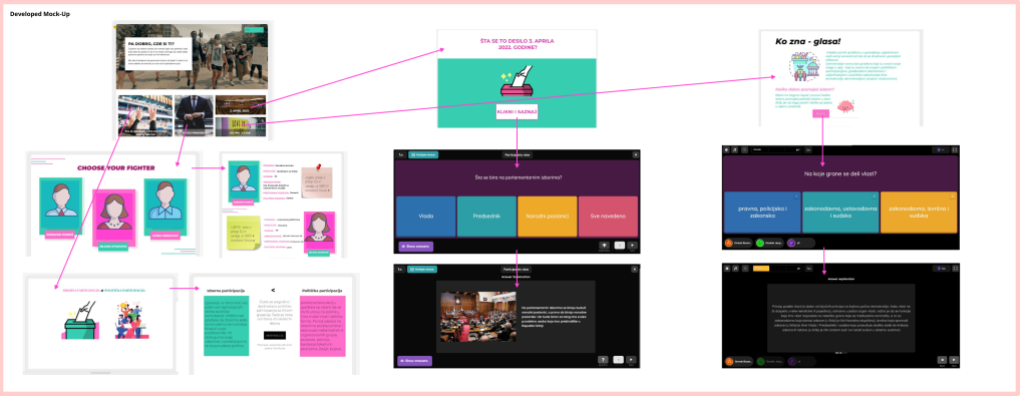
Project: Inclusio
Providing human-generated audio descriptions of visual content to the blind and visually impaired
Where are they at? Really pushing for results, a usable prototype of the Inclusio browser extension is already in place! The team was already able to demo a working browser extension that allows users of the World Wide Web to change or add the alt text behind images. Alt texts are written descriptions that can appear in place of an image; a tool highly necessary for the visually impaired. Users can either suggest or request content, while volunteers can then implement the changes.
Where are they heading? Building on this, the project team is seeking to further extend the browser extension to work across platforms. They are also fine-tuning the designs.
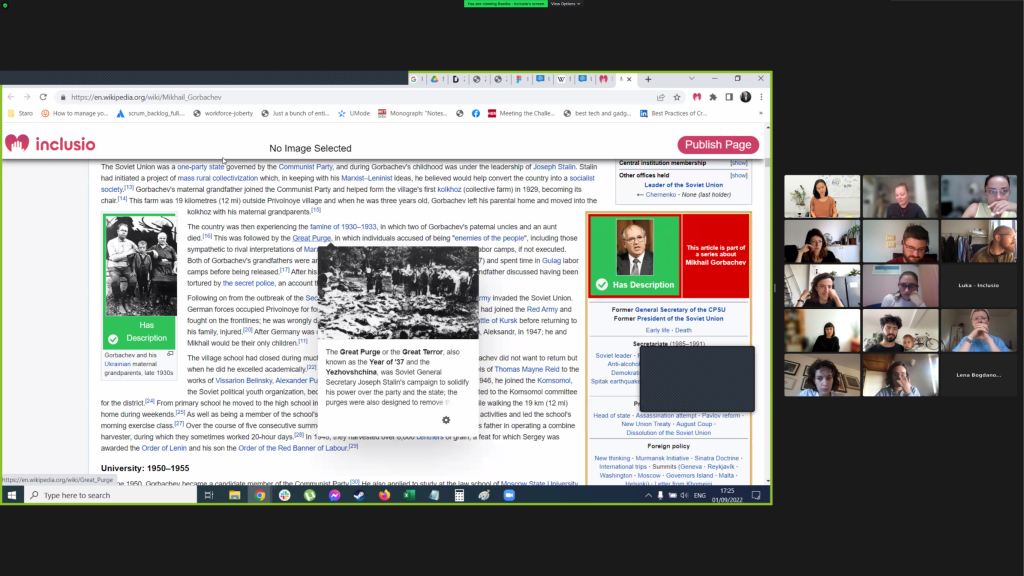
Project: macht.sprache
Offering the space to discuss politically sensitive terms and accordingly, to translate with sensitivity.
Where are they at? When starting on the UNLOCK journey this team had already gotten pretty far with their endeavor. Therefore, they spent the early days working hands-on by further developing their browser extension for DeepL that offers translation suggestions for politically sensitive terms. Additionally, they focused on networking and getting in touch with their target audiences. A part of this has been giving translation workshops and sharing their findings with an audience. The big question on their minds has been, How to build their community and keep them engaged in the project?
Where are they heading? Going forward, building new strategies for community building will keep them occupied. Some first thoughts are including social media and a potential reward system that gives back to the community. The browser extension is currently being internally tested and reviewed. As a next step, the product launch for user testing will follow shortly.
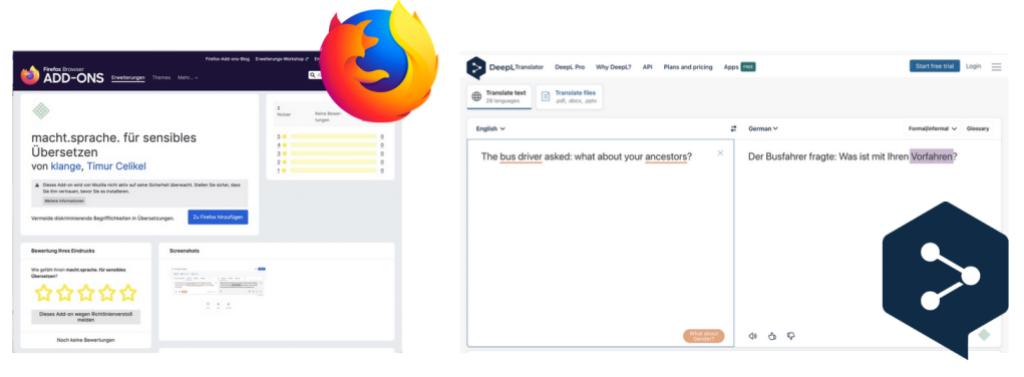
Project: P2P wiki for indigenous wisdom and biodiversity
Collecting and safeguarding indigenous knowledge as well as raising awareness about biodiversity.
Where are they at? The first phase of this project development process has had a strong emphasis on focussing the collective ideas. For one, the team has decided to pilot the project by collecting knowledge on bees native to the Amazonas. The team has also made headway by creating detailed personas. This way they have come to a better understanding of the different users they are designing for. Pulling all of this together, a first mockup of their P2P wiki demonstrates the workflow for the users.
Where are they heading? With the second half of the program in mind, the project team is looking to get user tests done to receive feedback and keep iterating their product. This also means building their prototype.
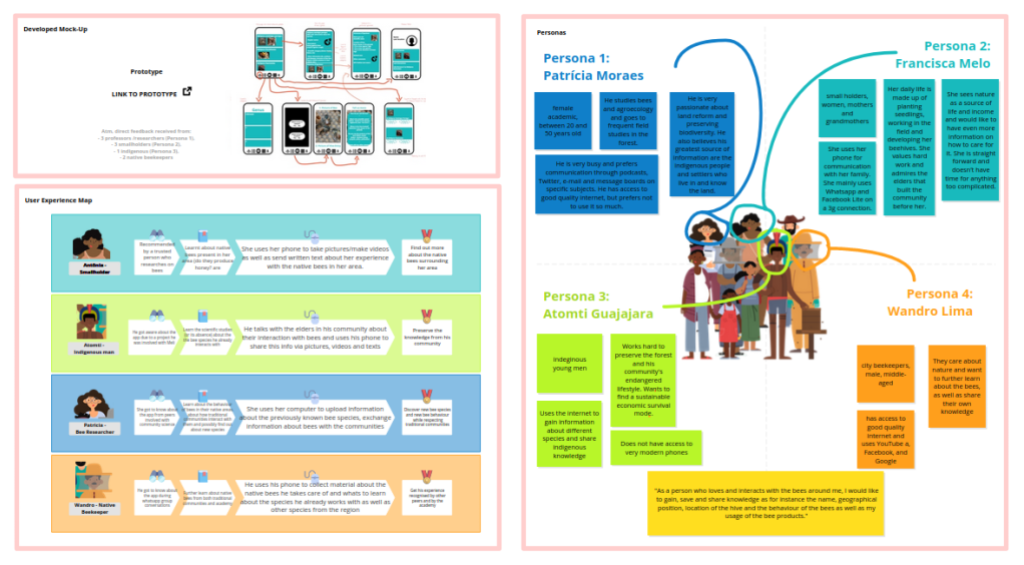
Project: activist.org
Connecting people and organizations across different activist movements and events to allow for intersectional participation and support.
Where are they at? Doing user research and building user journeys has been a large part of the project development process for this team: Talking to organizations and connecting with people at events has helped them test their assumptions and better understand their potential users. A big finding from these talks has been that building mobile solutions will be vital next to the desktop designs originally planned for. Many other findings such as creating a solution for potential platform abuse or offering tools for connection across organizations have helped the team lock their project definition in place.
Where are they heading? With designs already readily available, the team is looking to create a clickable prototype next. Automated user testings will be essential in further developing the product. Alongside, the team will launch their socials and seek to grow a community for maintaining the platform.
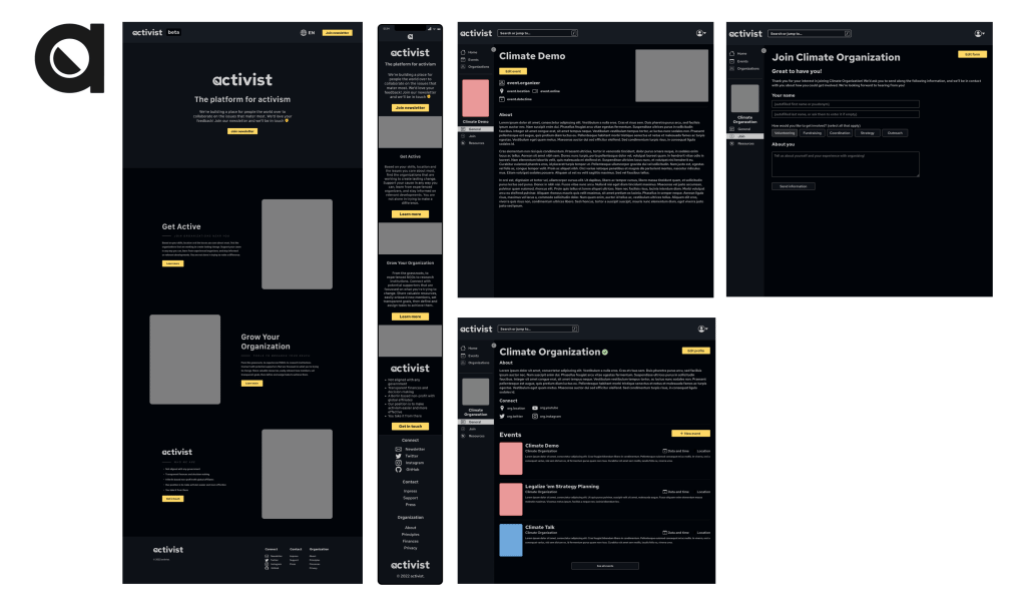
Project: MOCI SPACE
Building a digital space for activists, grassroot initiatives and civil society actors in the (Western) Balkans to co-create and share their knowledge.
Where are they at? Initially this team set out to do user research and conduct interviews with potential users. This ended up taking up a lot of their time as it turned out to be more extensive and even challenging than expected. However, working with the concept of human-centered design really helped them to define the real problems of their target group and design a product that will deliver on their needs. The team’s mockups already demonstrate some of the features they are aiming for, such as a newsfeed, a database of events and meetups happening in the area, and the integration of other tools such as whiteboards and video chats.
Where are they heading? A big next goal for the team is extending the database and making it more user friendly. This will also initiate the next phase of beta testing.
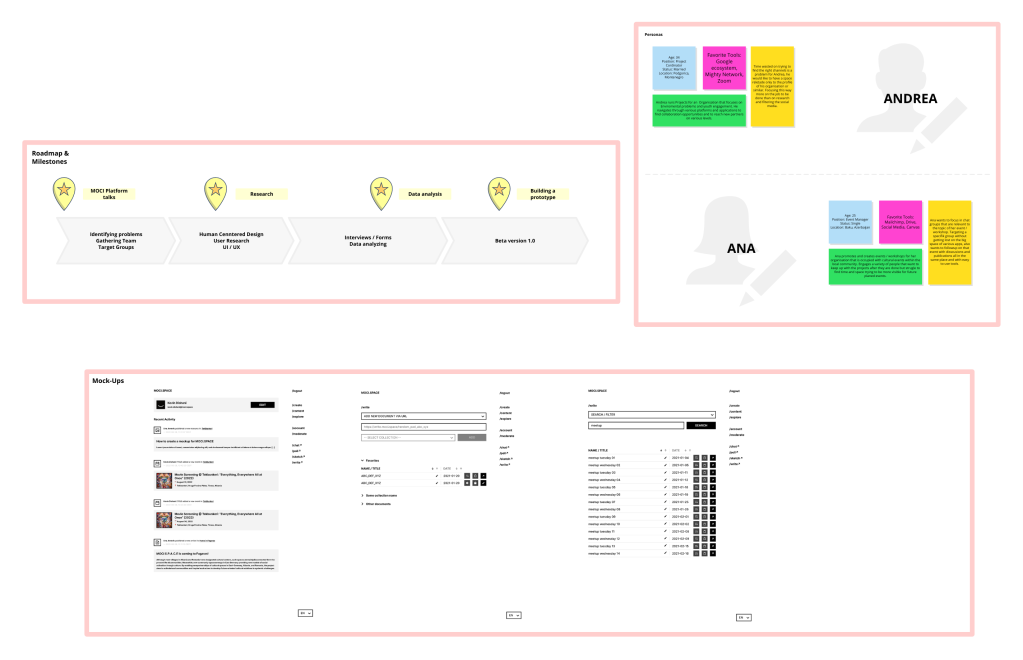
Project: humAIn code
Establishing an ethics certification for digital applications
Where are they at? This project has undergone several changes throughout the past two months. Therefore, this team went back to the drawing board a few times and worked on their vision and mission to make sure everyone is on the same page and driven by the same values. This has also helped in defining their roles within the team, and ultimately in sketching out the MVP (Minimum Viable Product). Content and motivated by their desired outcomes, the team has set out to conduct interviews with their target groups.
Where are they heading? Some of the team’s main challenges will be creating a business model that works with their open license and crowdsourcing plans. They will start Sprint 2 of the program by building a community agenda to test their concept, and figuring out how to give back to their community.
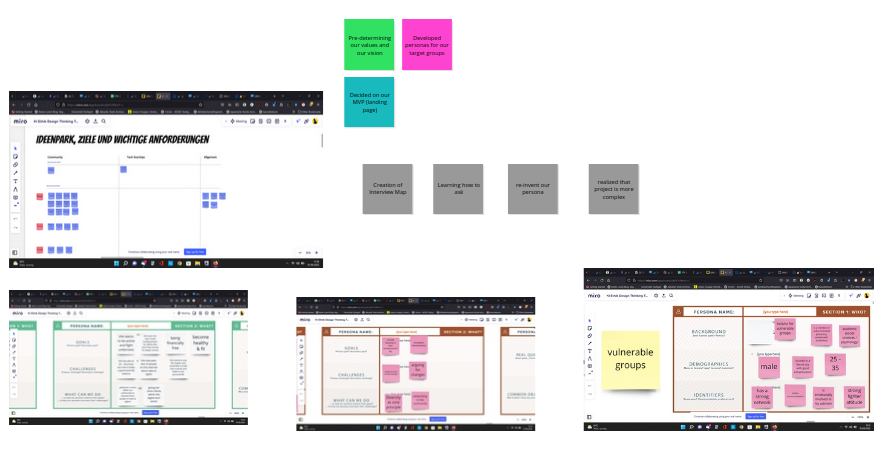
For updates about the projects and the program itself can be found on the UNLOCK website. Or feel free to follow us on UNLOCK Twitter or UNLOCK LinkedIn.

Can you help us translate this article?
In order for this article to reach as many people as possible we would like your help. Can you translate this article to get the message out?
Start translation